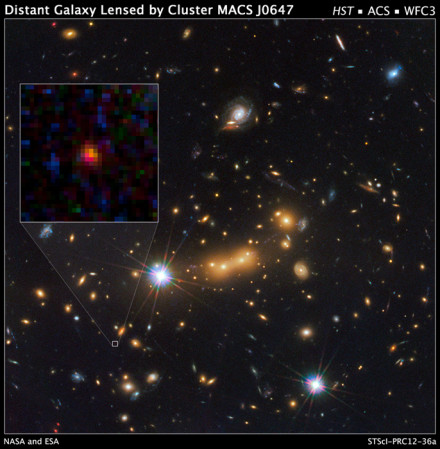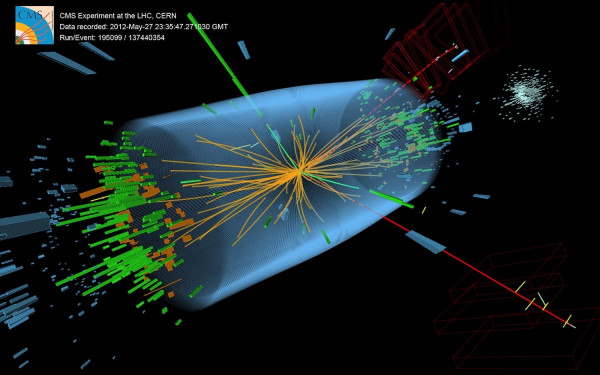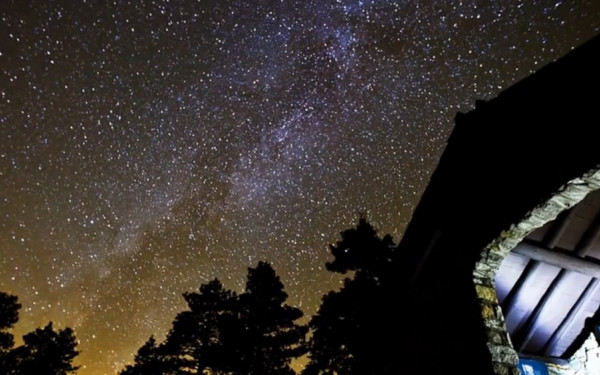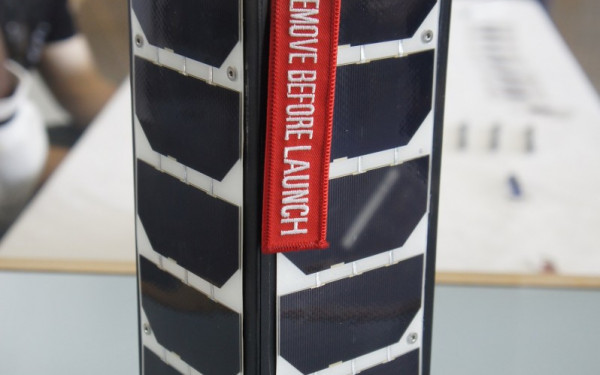Young Galaxy
Scientists have set a new record this week, measuring the most distant galaxy from Earth.
Now, at face value, this may seem little more than a rather cool statistic—but bear with me for a second.
This is also an incredibly young galaxy. It may only be a fragment of the size of our Milky Way galaxy, but it offers us a glimpse back to when the universe was only three per cent of its present age.
While the universe is 13.7 billion years old, this galaxy—named MACS0647-JD—lets us observe an object as it was when the universe was a spry 411 million years old.
“This object may be one of many building blocks of a galaxy,” said the study’s lead author, Dan Coe of the Space Telescope Science Institute. “Over the next 13 billion years, it may have dozens, hundreds or even thousands of merging events with other galaxies and galaxy fragments.”
—NASA web page
To give a quick explanation, space-time works in a way that, the further away something is from us when we measure it, the younger it seems from our perspective. It takes that much longer for the light to travel to us, so if it was, say, 7 million light-years away from us, then we would be glimpsing it as it appeared 7 million years ago.
Over 13 billion years ago, an era of immensely bright things being born took place—shimmering quasars, like giant funnels of light, began to form, along with baby galaxies. This new galaxy is a look into the past like never before.
The discovery, which was done by combining two telescopes and bouncing light off other galaxies—no, I’m not kidding—gives us our best glimpse into the early stages of galaxies. We can now glean a lot of information about their development, and in turn potentially infer how star systems with life-sustaining planets can come to exist.
Well, that may be getting a little ahead of ourselves. A few years ahead, at least.
I’ll leave you this week with some thoughts from Carl Sagan, the legendary thinker who helped spark a love of science in the minds of a generation. His book and subsequent television series Cosmos are the gold standard for pop-culture science media:
“The Cosmos is all that is or ever was or ever will be. Our feeblest contemplations of the Cosmos stir us—there is a tingling in the spine, a catch in the voice, a faint sensation as if a distant memory, of falling from a height. We know we are approaching the greatest of mysteries.”
—Cosmos (1980)
Bitted and spaced,
Andrew Brennan,
Assistant News Editor







_600_375_90_s_c1.jpg)